Coming Out As Trans While Married – My Story of Hidden Truths
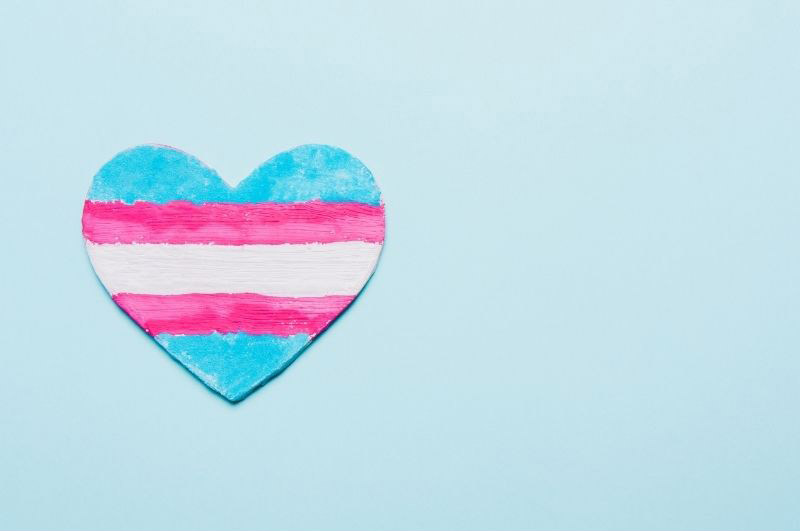
The decision to get married is a momentous point in a couple’s lifetime. It’s an exciting, defining, and ideally final choice when we propose and eventually say I do, and what follows often is a chaotic flurry of excitement, nerves, and planning. Most brides and grooms find themselves torn between the practical aspects of planning a wedding and new life together, along with the romance of that magical premarriage phase. It’s easy to become attached to the idea that time stops when we get married, and that the person we are and the person standing across from us is the best version of ourselves that we will always be, and that the certainty to be together can carry us through all roads ahead.
But People Do Change, As Did I
Nine years ago, I was that bride ready to take a step into the unknown all because I had found my prince charming. However, there was something important at that moment that my husband didn’t know, that I didn’t know, and none of the guests could have known. It took seven years of marriage for me to grow the confidence to become and accept who I truly am. Seven years until I could practically even consider the idea that not everything about me was how it appeared. Seven years later when I would be awake, unable to sleep, and hastily typing out an email that would change my entire world: “I think I’m transgender” followed by another quick email that said, “please ignore the last one!”
That first email reflected the new feelings I had when I looked at the girl staring back at me in the mirror and who I longed to be, and the second email was a panicked and immediate retraction that embodied the shame and destruction I feared such a statement was capable of. Thirty-two years of my life passed me by before I could get to such a point. Thirty-two years of a quiet and growing unhappiness and more questions than answers.
No two stories in the LGBT+ community are ever the same, but there are threads of commonality. It’s really difficult to provide you with statistics and numbers around when the majority of transgender individuals will come out, or at what age they’ll start to experience dysphoria with their bodies, minds, and goals. Some individuals come to this realization at a relatively young age and insist early on that they have always known who they are, while others require more time before we can take our final form. No matter how, why, or when someone discloses such an intimately personal truth, the reality is that coming out is based on a lifetime of experiences, dreams, and longing. With more information and resources available in our world, more transgender individuals are coming out of the closet later in life – there are even specific subreddits and resources dedicated to the older transgender population and the unique challenges they may experience such as divorce, marriage, and sometimes children being thrown into the mix.
Like most older transgender people, my statement did not just impact me. I had typed those words out and manned up before I had even fully realized what they meant to me or our marriage. I felt both incredibly brave and stupid as I sat up in the night with my heart pounding and my mind racing. More than once I considered getting up and trying to unlock his phone to delete any trace of those two emails as if that action could save me from the revelation that had just occurred. When he woke up early the next morning and reached for his phone, I was quick to suggest a morning jog instead of screen time (as it’s one of his favorite activities), and he thankfully took me up on it. By the time he got back, I had forced myself to fall asleep, unable to face a world in which I had changed everything and yet nothing had changed.
What Does a Lifetime of Waiting to Come Out Look Like? (My Experience)
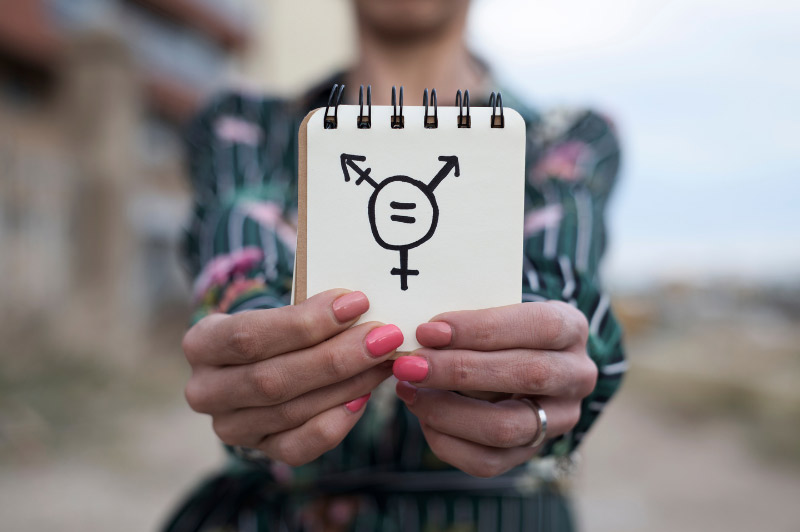
My husband is one of the few safe spaces that I have ever experienced in life. I identified as bisexual in my teen years to parents who were horrified, and unable to accept. I was carted off to church and taught to shame what they saw as the sexual deviant nature lurking inside of me. My early years were spent on a thin tightrope of trying to honor the things I believed in while hiding behind the appearance of being the daughter that they demanded.
Growing up in my home had never been easy due to abuse and parentification, and there were often battles that I didn’t always understand. As a child, I had grown fond of power rangers, but my mom had been quick to push barbie. At the age of three, I had thrown down a dress defiantly and demanded that my uncle take it back to the store. My mom had been quick to point out that the dress was my favorite character mickey, but I hated dresses. My mom had always required my hair styled long to the point that it reached down my entire back, but I had insisted we cut it after being in tears from too many detangling sessions and not seeing the point of such a burden. I never wore a bra or shaved my legs until taunts from peers had changed my mind.
I discovered Anne Rice at a young age and her homoerotic writings felt so precious and beautiful to me. I primarily preferred and empathized with male characters, finding their stories and struggles not only more exciting but more relatable. In my teenage years, I adopted the 90’s gothic aesthetic which looking back now was undoubtedly androgynous. I loved my chain pants, combat boots, and t-shirts that had sayings on them. My teenage years were spent listening to the music of Alice Cooper, Twisted Sister, and Guns N Roses and dressing up like The Rocky Horror Picture Show cast with my friends. At school, I had a proudly diverse and queer friend group who I would participate in the Day Of Silence and other advocacy efforts in but I’ll never forget the day a classmate told me I should join the Gay-Straight Alliance (GSA) and my heart dropped. They didn’t understand why I would say no, and they pressured me saying that my parents didn’t have to know. It was an easy and naïve statement coming from them in an accepting home. I walked that line for many years of wanting to reach further than I was allowed but keenly aware of the chains holding me back.
What Does This All Mean?
Let me be clear, none of these things on their own necessarily meant that I was destined to be transgender. However, looking back in hindsight, there were enough moments when I had completely missed or ignored why I felt the need to play with power rangers, or why wearing a dress felt like such a horrible fate. It’s common for transgender people to sometimes feel a tug of war between the things they’re drawn to, and what’s acceptable either within their homes or within societal norms. When you’re young, it’s easy to become fixated on where you fit in versus on claiming individuality, interests, and standing out. I always stood out unintentionally by following my heart. It was easy to tell myself that this was just how things had to be instead of following the thought further. I could provide countless examples of these moments within my own life experience, but I think you get the point.
The Ebbs and Flows of My Experience – Meeting My Husband
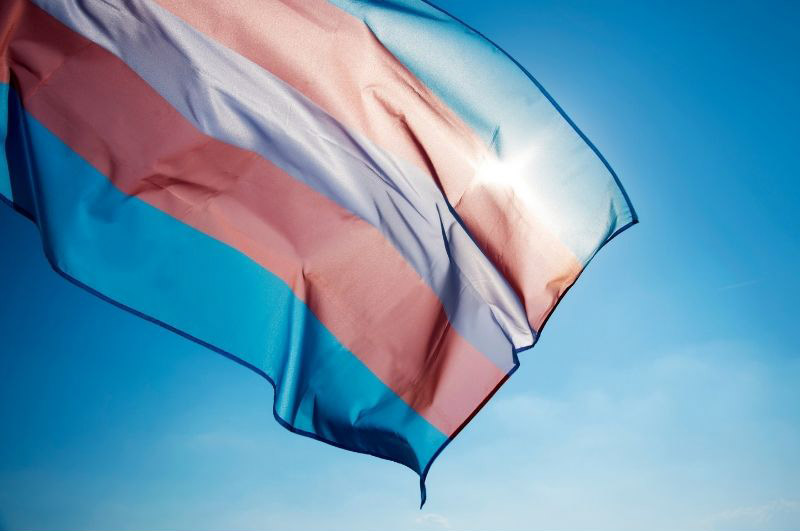
A lot of transgender female-to-male people talk about a period of hyper-feminity directly before coming out. In my twenties, I experienced such a period. I began to give up on individual thoughts and values I held and actively began trying to purchase and adorn myself with all the things I thought would help make me enjoy being female: from heels and makeup to endless dresses and skirts. It was easy to rationalize that I was only getting older, and my parents were always reminding me that being alone and unmarried would be a horrible fate. I kept my hair long and tried my hardest to be more demure. I went back to the church I had abandoned and prayed for salvation. Often, I felt like I was looking at a list of my flaws and eagerly trying to fix each one in the hopes that some magical joy and spark about being female would take over and whisk me away to the land of Disney Princesses. I yearned for the confidence and beauty that so many other women simply seemed to embody.
My husband and I met while we were both working at a theme park. We worked at different rides but within the same area and so our paths would cross from time to time. Before morning meetings, I would sometimes share a nice conversation with him, happily chattering away about how beautiful the morning was while sipping coffee, and I, looking like a zombie, would try my best to follow any words he spoke at all. One day we got to work the log flume together, and I noticed that he was particularly quiet and shy. It wasn’t love at first sight, but I had always felt a keen attraction to him – he’s tall with a runner’s body and legs, and his golden curly hair always reminds me of the same sunshine his personality has when he’s in a good mood. He was the type of guy who awoke everything in me and yet felt very out of my league.
Nothing would happen between us until after those jobs had passed us by. We would reconnect on Facebook, and like a lot of people with crushes, we began obsessively liking one another’s status and pictures. I spent most of our first date wondering if it was a date at all until our hands found each other. Before meeting him, I had spent two years single, and suddenly I was involved in the most intense and honest relationship I had ever experienced.
We were quick to move into serious territory and yet at the same time, it felt like we had always known one another. I had confided in him early on that I was bisexual, and he had told me quietly that he had felt similar same-sex urges, but had never had the right person or moment to explore that side of him. It did not bother him at all that I liked sisification or had a part of myself that my parents had discouraged. He felt a similar longing to just be himself and not live by another’s standards.
I liked him enough to roll out all the common female trappings, and he often sidestepped and mocked each one leaving me frustrated. When I wore makeup hoping to appear more attractive, he had pointed out that my makeup tasted horrible, and that makeup stains on his shirts and lips weren’t attractive. When I donned my heels in a desperate bid to reach his height, he had laughed at me and asked me what was so horrible about being short. When I had responded that it was easier to kiss, he had been quick to point out that he could bend down more if I just asked.
He Gave Me the Freedom to Present How I Wanted
Sometimes I wondered what was wrong with him – that he was so immune to all my best efforts to woo him. I would point out that other men in the past had liked me that way and he would just shrug. He gave me the freedom to present how I wanted, and there was never any pressure to conform to someone that I wasn’t. When I was with him, I began to let my guard down, often ditching the heels and the makeup. But in public, I still felt that relentless pressure to be female. I would constantly go from being able to live as my authentic self without pressure, to feeling upset that he couldn’t see how much work or effort went into embracing the world of my assigned gender at birth.
It wasn’t enough for me to be unhappy with my assigned gender, though it also began to cause problems with how he related to himself. If he spent longer on his hair than I did on mine, I viewed it as a failure on my part. I would harass him over any clothing that had flowers or bright colors, complaining that it was an attempt to steal attention away from me. He was almost a natural at feminine things I had always struggled with, and it left me with a feeling inside that ripped my soul apart. I would feel so bad for lashing out at him and wondering why I was so judgmental over things that truly didn’t matter, and he would stare at me bewildered that something so simple caused such strife between us.
Embracing, healing, and mental health
Over the years, I began to struggle with depression, anxiety, and suicidal ideations along with one attempt. A 2011 study from the National Transgender Discrimination Society revealed that 41% of transgender participants had attempted, at some point, to take their own lives. (If you are struggling and need help the very first transgender suicide hotline is live now, PLEASE reach out at: 877-565-8860 (USA) or 877-330-6366 (CAN)). I am so glad that I am here now to share my story with you because I’m living proof that it can get better.
Unfortunately, here is the part of my story where things really got worse for me.
My once happy marriage became something unrecognizable as we argued and blamed each other to an alarming degree about anything and everything. Our friends and family at the time only made things worse with their unsolicited advice. According to my parents, the whole problem was that I had abandoned the church and was infertile and indulgent. All I needed was a child and prayer and all would be solved. His parents doubled down on their decision that I was improper for their son from day one, and that you just could not fix someone who was broken. We both retreated to the sides that felt like support and told us what we wanted to hear.
Observing Mental Health
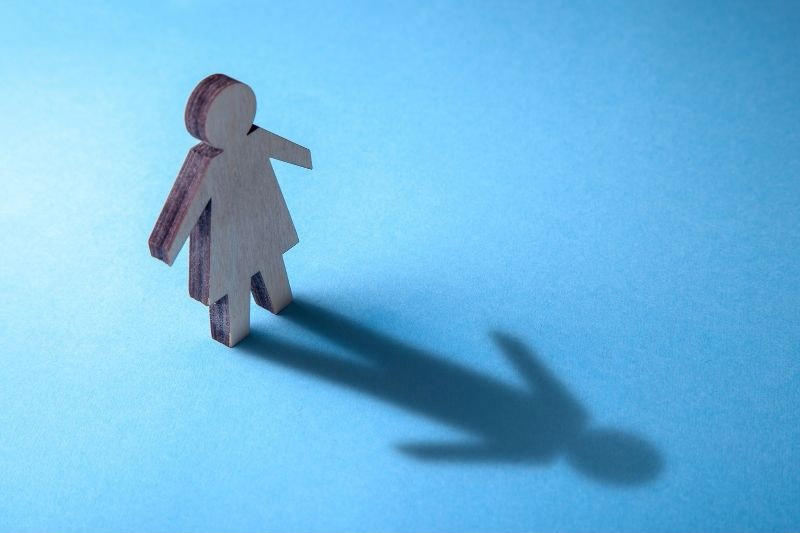
Mental health was not something I had ever really considered in my life. My childhood had been traumatic, but I had grown up in an environment where I constantly had to carry on regardless of how I felt about a situation. My teenage years had been angsty, but I was assured that was normal. I went from a confident person who could do things on their own to an individual who would have panic attacks and dry heaves being around stores or other people. I would sob for hours on end and began to have trouble with tasks like washing myself or eating.
I had embarked on multiple hospitalizations, therapists, and even ECT treatment done in an attempt to help me regain my life. But during this whole period of my life, I was very aware that I was losing my marriage. Nobody prepares you for what to do if your spouse falls apart and my husband was trying his best but we weren’t good for each other for quite a while. Every day he would come to the hospitals when I was admitted, and even though we were both hurting, we were trying our best to hold onto something or anything that we had experienced in our early days. I believe this level of dedication and hard work is what has kept us going even when our world fell apart.
My Experience with Therapy
Therapy is nothing like what they show on tv or in the movies. Your therapist can often appear disinterested and rushed, or like they are playing a game of twenty questions to try to find some thread to bother you with. I often felt like my therapists and doctors were fortune cookies – just dispensing little tidbits that didn’t apply to my life. But there was one thing a therapist said that when applied, actually began to change my life and it wasn’t something I implemented until I was beginning to heal.
I was advised to look at my energy as if they were spoons and I only had so many spoons a day that I could devote to different aspects of my life. Each one of my spoons should make me happy, and if something didn’t make me happy then it wasn’t worth spending one of my spoons on. I began to check in with myself throughout the day about whether or not something made me happy and I was advised that if something did not – I was to remove it from my life. I was not expecting how the list of things I didn’t enjoy would pile up, but they did.
Things I had never really acknowledged as a challenge began to pile up, such as dealing with my long hair, wearing makeup, carrying purses, etc. At the time I saw it as simplifying a chaotic and cluttered existence, but now I know it was the beginning of something else entirely – someone else entirely My husband, who had never cared for most of those things, didn’t have much to say as piles of donations of personal belongings came and went, but he did pause to wonder what was happening with me when I let my purses go. I am a designer fanatic, and my purses had always been a source of great pride for me. My husband even tried to convince me they could stay so I could just look at them from time to time, but I was insistent – they needed to go.
Questioning Gender Norms Can Only Go So Far

We began to experience life together with an honesty that was reminiscent of the early days of our marriage. We looked at my recovery as an opportunity for us both to recover and discover things together again. When I expressed a desire to go bald and escape my hair, he clipped it himself and then did his right alongside me. When I would catch glimpses of ourselves in a mirror, it felt wonderful to have such a visible ally. When I expressed a desire to wear men’s clothing because it was more comfortable and durable, he went with me helping me pick out things, explaining sizing, and even checking out with the items when I was terrified to be seen with them.
I began to think more about why I felt the need to adhere so strictly to standards that not only had I not created, but that I didn’t even truly believe in. The one constant I always come back to is that nothing is ever enough. It wasn’t enough to have short hair, wasn’t enough to wear men’s clothing, and it’s not enough to stop that journey where I am today. I believed for so long that you were allowed to change anything about yourself that you didn’t agree with, but it had never occurred to me that one of the things that should be questioned and looked at as well is gender and our notions of it.
Moving forward together
I have thought more than once along this journey that my husband’s early support was premature. He knew I had gone through something extreme in life and that he didn’t see the harm in me being open and questioning. Sometimes I oscillate between being happy with my life to panicking about the long list of things to do that accompany birthing Erik (my new name) into this world.
There are nights when my husband and I play endless “what-if” games together, asking things like
“What if people perceive us as a gay couple when I fully pass?”
“What if you get questions about my appearance?”
“What if someone overhears the pronouns you use for me and has a problem?”
“What if I get top surgery? What if I don’t get top surgery?”
“What if the hormones I want to take one day make it so we can’t enjoy sex?”
“What if someone who’s homophobic makes us a target – is that something you can be okay with?”
Transitioning Can Be a Public Affair
Transitioning can be a very public thing, often at times when you wish it was private. There is no way to quietly change your clothing, pronouns, and fit into society without others perceiving something they do not understand. It is easy sometimes to feel lonely when out shopping or when introducing myself to others. I am pre-op everything due to a two-year wait in trying to get the insurance that will cover me moving forward. People are fond of looking at my face and then my chest in confusion or making comments just loud enough to reach my ears, but not loud enough for me to feel justified in shutting them down.
My Advice for Those Transitioning, or Their Allies
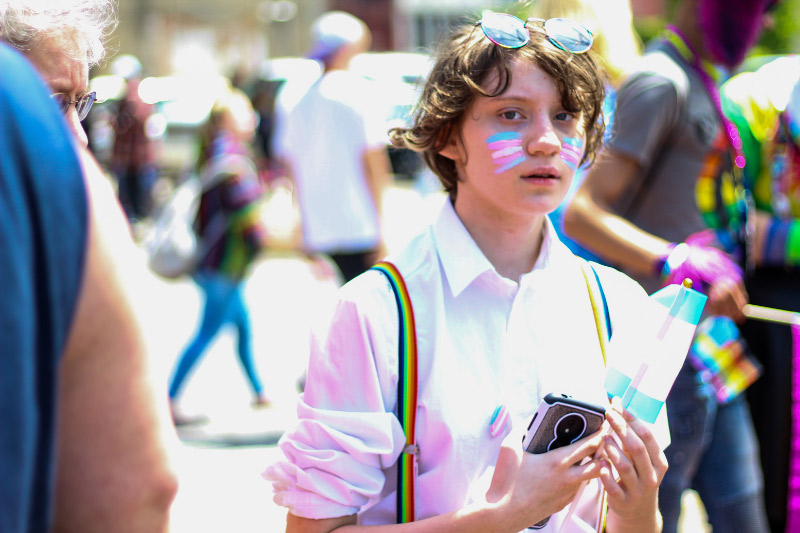
The best advice I can give to someone who is dealing with this themselves or a loved one who has opened up on their struggle is to listen, ask respectful questions, and give them time and patience to come to terms with what they’re experiencing. Be an ally and take them clothes shopping! Help them through the parts they find the hardest and don’t seek to judge or worry about how others are going to take it. Ask them what pronouns they prefer both now and for when you are talking about the past. Think about how pictures, posts, and language effects the person you’re talking about and to.
While coming out as transgender initially felt like the end, I am living proof that it does get better. My experiences with my husband have left him looking more like prince charming now than when we first got together.
As for our parents, after three years of silence I sent my parents a letter detailing both how my childhood abuse impacted me and informing them of my decision to transition, to which my dad’s only text reply was to tell me that I don’t know myself and I’m confused. My husband’s parents were told in-person in a last ditch effort to try to repair a relationship that has always been strained. His mom asked for details on what my personal journey would look like and then promptly checked out when the answers weren’t to her liking. As I move farther into my new life now I’m looking forward to reconnecting with the LGBT+ community and finding the support that my husband and I both deserve.
LGBT+ stories aren’t always magical at first glance, but being able to truly be me – it’s a fairy tale that thirty-two years ago I didn’t know how to ask for. I’m grateful for the courage I’ve had to take that step, the support of such a wonderful man who isn’t threatened or afraid to step into that world with me, and I know my best years are ahead of me regardless of the opposition that I’ve overcome. Sometimes “I do” really does change your life by unexpectedly thrusting the closet doors wide open. But regardless of how you find your freedom, just know that it’s worth it in the end – no one deserves to live inside the closet.
About the author: Erik Summer is an out and proud member of the LGBT+ community who in the past has volunteered with Letters Against Depression. They’ve been happily married for nine years, prefer he/him and they/them pronouns, and live in Ohio with their wonderful husband Mark. In their spare time, they enjoy working for Shipt, spending time with their pets, and are always looking forward to where life will take them next. If you’d like to contact them their email is: [email protected]
